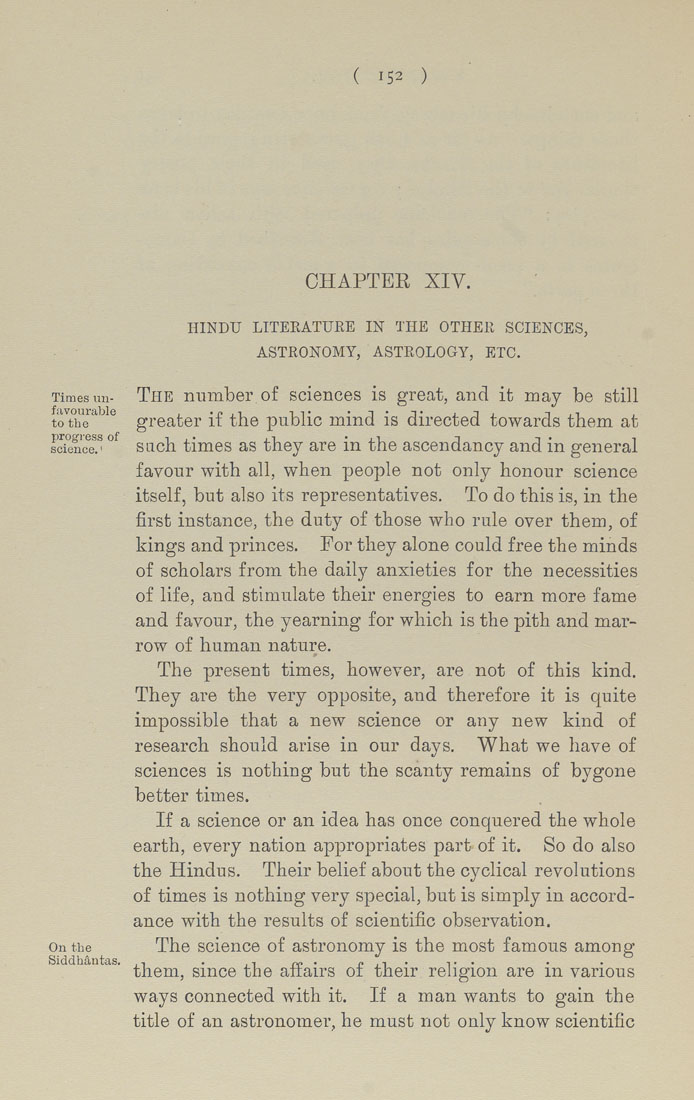Bīrūnī, Muḥammad ibn Aḥmad, Alberuni's India (v. 1)
(London : Kegan Paul, Trench, Trübner & Co., 1910.)
|
||
|
|
|
|
| Page 152 |

( 152 ) OHAPTEK XIV. Times un¬ favourable to the progi-ess of science.' On the Siddhantas. HINDU LITERATURE IN THE OTHER SCIENCES, ASTRONOMY, ASTROLOGY, ETC. The number of sciences is great, and it may be still greater if the public mind is directed towards them at such times as they are in the ascendancy and in general favour with all, when jjeople not only honour science itself, but also its representatives. To do this is, in the first instance, the duty of those who rule over them, of kings and princes. For they alone could free the minds of scholars from the daily anxieties for the necessities of life, and stimulate their energies to earn more fame and favour, the yearning for which is the pith and mar¬ row of human nature. The present times, however, are not of this kind. They are the very opposite, aud therefore it is quite impossible that a new science or any new kind of research should arise in our days. What we have of sciences is nothing but the scanty remains of bygone better times. If a science or an idea has once conquered the whole earth, every nation appropriates part of it. So do also the Hindus. Their belief about the cyclical revolutions of times is nothing very special, but is simply in accord¬ ance with the results of scientific observation. The science of astronomy is the most famous among them, since the affairs of their religion are in various ways connected with it. If a man wants to gain the title of an astronomer, he must not only know scientific |
| Page 152 |







